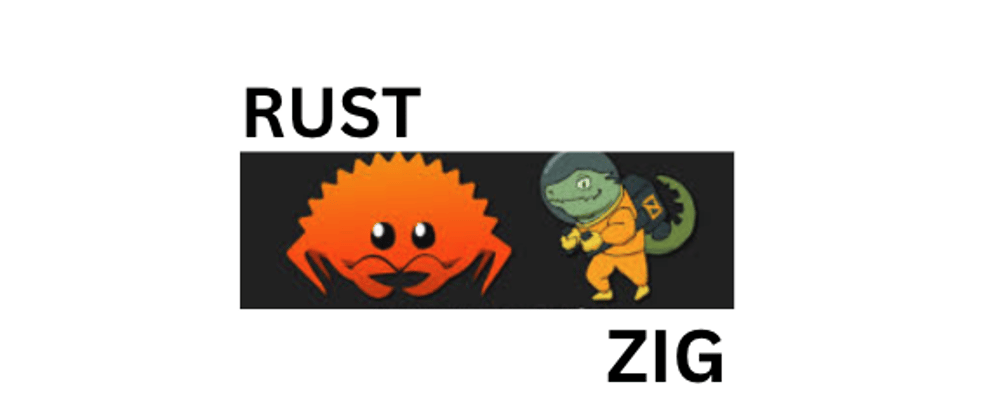Introduction: The Rise of a New Challenger
For years, Rust has long been the go-to language for memory-safe, high-performance programming. It’s used in production for everything from browsers (Firefox) and operating systems to game engines and embedded systems. Developers enjoy its freedom from memory bugs, great concurrency model, and the fact that it has an actively developing ecosystem.
However, there might be a new kid on the block when it comes to system programming languages. Zig is a looker - a lightweight, flexible, and simpler alternative that’s turning heads in low-level development.
So, is Zig the real competitor to Rust?
As someone who’s interested in programming languages, I went through this Rust vs Zig article to see what are the things each language do best, what are the differences and if indeed in 2025 people should start considering on learning Zig.
Let's break it down!
Why is Rust So Popular?
Rust has had a meteoric rise in the last decade. Some of the biggest companies like—Microsoft, Google, Amazon—adopted Rust for its ability to erase a whole class of bugs: memory bugs that are pervasive in systems languages like C and C++.
- Memory Safety Without a Garbage Collector
- Fearless Concurrency (No race conditions!)
- Performance Comparable to C/C++
- Rich Ecosystem & Tooling (Cargo, Clippy, Rust Analyzer)
Where is Rust Used?
- Linux Kernel Development
- Game Engines (Used in parts of Bevy)
- WebAssembly (Wasm) (Super lightweight web applications)
- Blockchain & Cryptography (Ethereum, Solana, and Polkadot use Rust)
- Embedded Systems (Memory safety without runtime overhead)
Rust is safe, fast and arguably perfect for large applications. Is it too complex for some developers? This is where Zig comes in.
Zig:
Unlike Rust, which has strict borrowing rules and a complex compiler, Zig focuses on simplicity, performance, and manual memory management.
What is Excited About Zig?
- No Garbage Collector, No Runtime Overhead
- Manual Memory Management (More Control than Rust!)
- Compile-Time Memory Safety (Without Rust’s Borrow Checker Complexity)
- Interop with C and C++ (Easier than Rust!)
- Cross-Compilation Made Easy
Use Cases of Zig
- Game Development (Lightweight, manual memory control without Rust’s strict rules)
- Operating Systems (OS Dev) (Zig is being used in bootloaders & OS kernels)
- Embedded Systems & Bare Metal Programming (Efficient, predictable memory usage)
- Performance-Critical Applications (High-performance networking, rendering, etc.)
Zig is faster to learn, offers more flexibility, and is ideal for developers who prefer a C-like approach without all the Rust-specific rules.
Rust vs. Zig: Differences
| Feature | Rust | Zig |
|---|---|---|
| Memory Safety | Uses Borrow Checker (Strict Rules) | Manual Memory Management (More Freedom) |
| Concurrency | Fearless Concurrency (No data races) | Requires Manual Synchronization |
| Garbage Collector | No | No |
| Ease of Learning | Steep Learning Curve (Ownership, Lifetimes) | Easier (More like C, No Borrow Checker) |
| Performance | Extremely Optimized | Faster in Some Cases (Less Overhead) |
| C Interoperability | Requires unsafe blocks |
Native C Interop (No FFI needed) |
| Ecosystem | Huge (Cargo, Crates.io, Community Support) | Smaller, but Growing Fast |
| Use Case | Large-scale, safety-first applications | Performance-critical, minimal runtime applications |
Takeaway:
- Rust is for developers that want to prioritize safety, concurrency, and having an active ecosystem.
- Zig is for developers who want more manual control, lightweight binaries, and an easy-to-learn language for system programming.
Should You Learn Zig in 2025 or Stick with Rust?
Who Should Learn Rust?
- If memory safety (without garbage collection) is what you're after.
- If you're working on a browser, an OS, or a game ...
- If you want to contribute to open-source projects (Rust has a huge ecosystem).
Who Should Learn Zig?
- If you want more control over memory and performance but not at the cost of using a borrow checker.
- If you’re coming from C or C++ and want something that has a similar level of low-level control.
- If you’re building performance-sensitive applications like game engines or OS kernels.
Who Should Learn Both?
If you’re a real systems level programmer, then knowing both Rust and Zig will be the best.
Conclusion
Rust vs. Zig isn’t a matter of choosing one or the other; they’re both great at different things.
- If you want safety, reliability, and an amazing ecosystem, Rust is your best bet.
- Zig is for people who want simplicity, performance and low level control.
In the end whoever uses both better is actually the beneficiary. It may be Rust or Zig but system level programming going through rapid change and these two are defining that.




Top comments (7)
Nice, this is the comparison i have been waiting for.
Great breakdown of Rust vs. Zig! Rust’s borrow checker ensures memory safety without GC, making it a top choice for systems programming, while Zig’s simplicity and manual memory management give it a unique edge in performance-critical scenarios. It’s interesting to see how Zig’s compile-time optimizations compare to Rust’s strict safety guarantees. Curious to hear from other devs—how do you decide between Rust and Zig for your projects?
Next: NiM 👨🏻💻
Excellent article!! Would like to know how Zig memory management is better than C++ in terms of safety?
Sure, i would like to read your article about it!
This is really nice and quick overview but written or formatted by chat GPT.
Cool!
Some comments have been hidden by the post's author - find out more